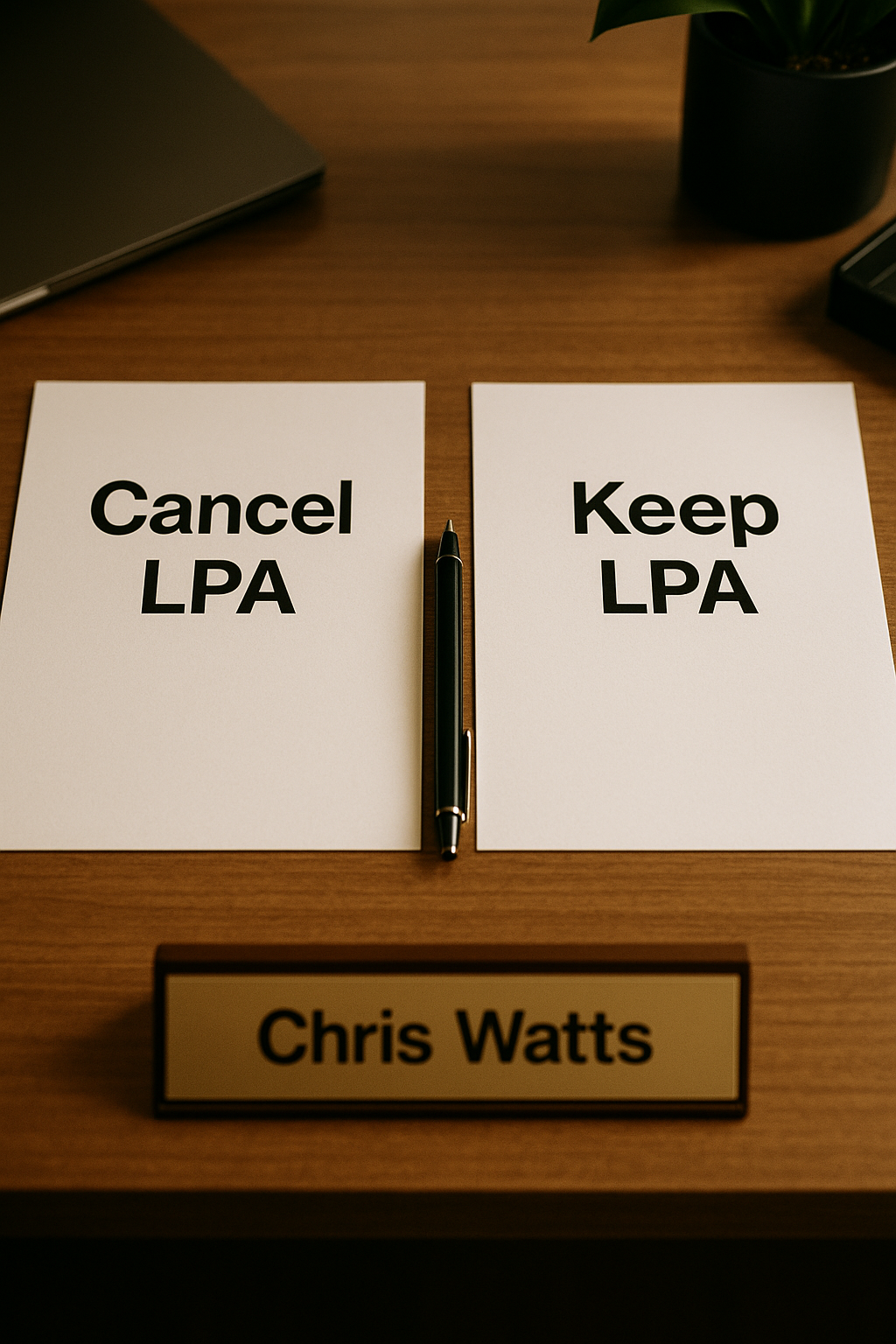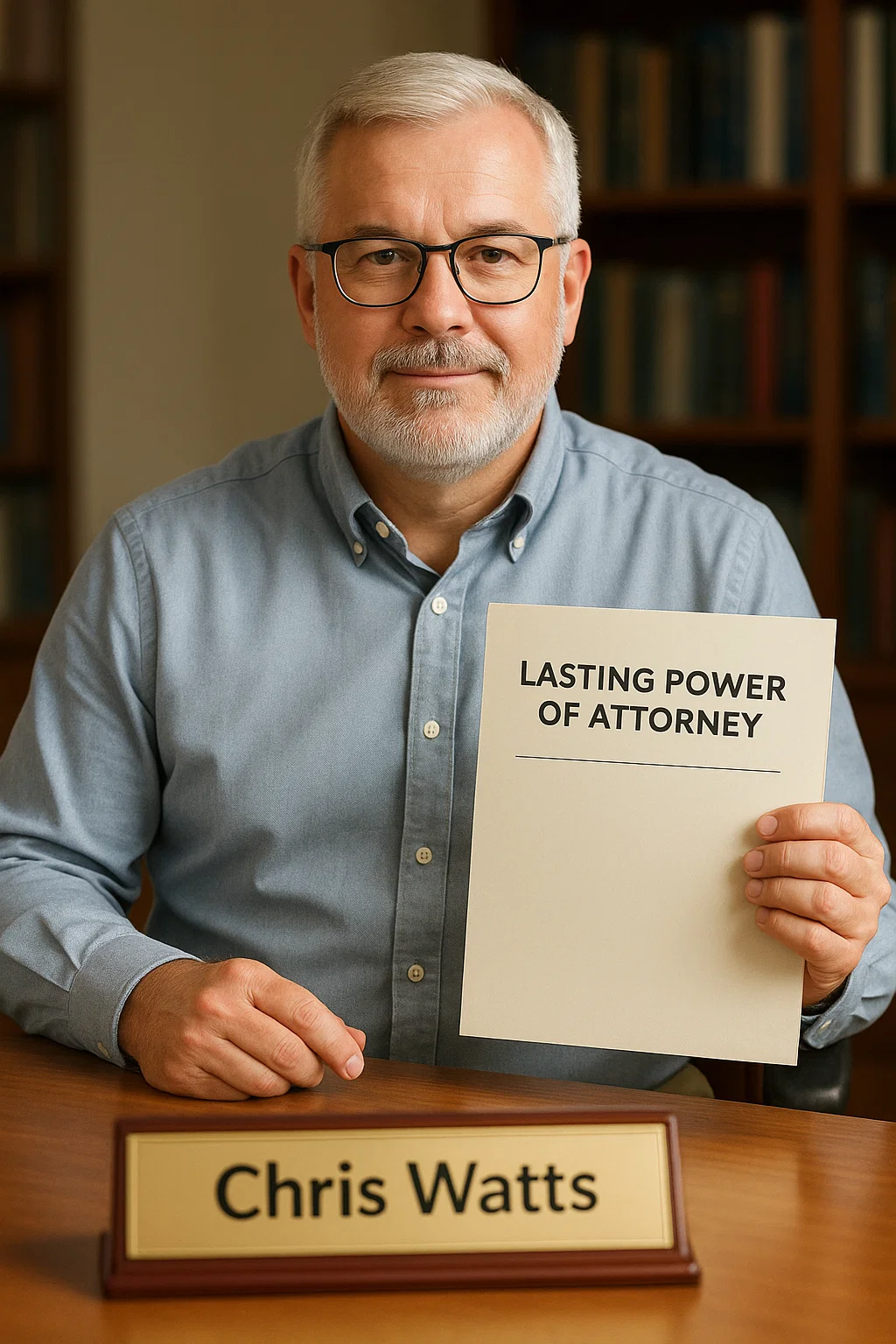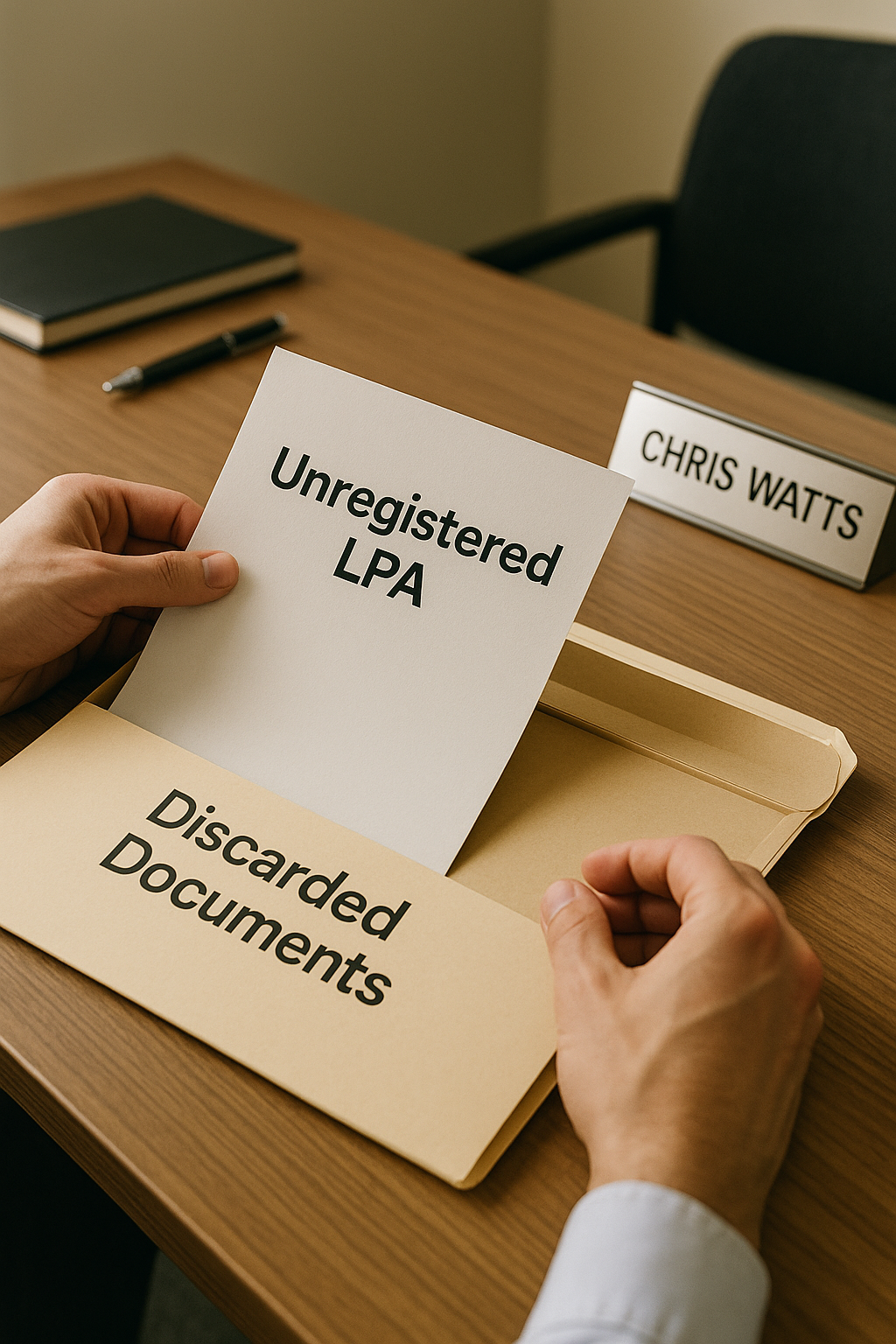Cancelling Your Lasting Power of Attorney

Chris Watts: MSWW, CeMAP
Last verified: 16 August 2025 (England & Wales)
Quick-Read Summary
A Lasting Power of Attorney (LPA) gives someone you trust legal authority to act on your behalf. But circumstances change — relationships shift, attorneys may no longer be suitable, or you might simply want to update your arrangements.
Revoking (cancelling) an LPA is straightforward, but the process depends on whether it has already been registered with the Office of the Public Guardian (OPG).This guide explains:
- When and why you might cancel your LPA
- The difference between unregistered and registered LPAs
- How to revoke formally and notify all parties
- What to do if disputes arise
- Why professional help can protect you from problems later

Why You Might Need to Revoke Your LPA
You may wish to cancel your LPA if:
- Your attorney has died or can no longer act
- Trust has broken down or your relationship has changed
- Your attorney’s own health or circumstances make them unsuitable
- You want to appoint a different attorney better suited to your needs
- Your financial or health situation has changed significantly
If Your LPA Has Not Yet Been Registered
If your LPA has not yet been registered with the OPG, it has no legal effect. Cancelling is as simple as:
- Destroying the document securely
- Making a new LPA if required

If Your LPA Has Already Been Registered
Step-by-Step Process

- Notify Your Attorneys
Write to each attorney to confirm you are cancelling the LPA. Send by recorded delivery or hand-deliver. - Complete a Deed of Revocation
This is a formal document that states your decision. It must be signed and dated correctly. - Submit to the OPG
Send your deed of revocation to the OPG so they update their register. - Notify Banks and Organisations
Ensure institutions know the LPA is cancelled. Provide copies of the revocation notice if asked. - Dispose of Old Documents
Destroy old LPA copies or mark them clearly as “revoked”. - Consider Making a New LPA
If you still need an attorney, prepare a replacement as soon as possible.
What If Disputes Arise?
Sometimes, attorneys may resist or challenge your decision. This can cause stress or delay. Options include:
- Mediation to resolve differences
- Legal advice from a solicitor specialising in capacity law
- Guidance from the OPG on next steps
Why Professional Guidance Helps

At Fern Wills & LPAs, we can:
- Check that cancellation is the right step for you
- Prepare the deed of revocation correctly
- Notify your attorneys and the OPG on your behalf
- Advise banks and healthcare providers
- Dispose of old documents securely
- Help create a new, updated LPA if required
Helpful Checklist
- Deed of revocation signed and dated
- Attorneys notified in writing
- OPG submission confirmed
- Organisations informed
- Old documents destroyed
- New LPA made (if needed)
Next Steps
Cancelling an LPA is an important decision. Doing it properly ensures your wishes are respected and avoids future disputes. If you’re thinking about revoking your LPA, get in touch. We’ll guide you through the process and make sure your affairs are handled with clarity and care.
Sources & Further Reading


